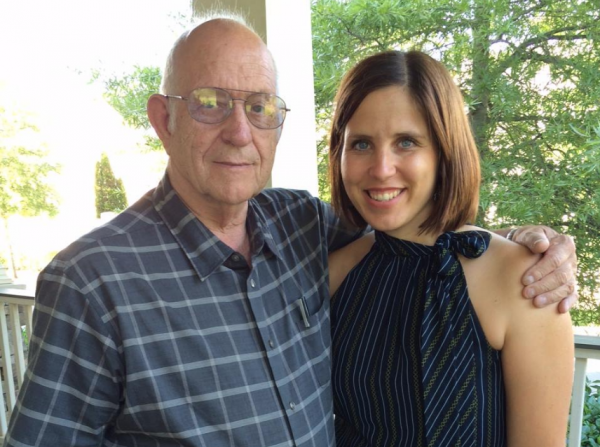
I have the gift of gab, inherited from my father — whom my kids call “PaBob” — who can (and does) get into conversations with total strangers with great regularity. No one is safe from his conversational skills, not the tired waitress at Cracker Barrel, the first time visitor at church, or the blue haired cashier at Wal-Mart.
As a southerner, chitchatting with strangers seems as natural as sweet tea and biscuits. (If I ever get into a conversation with someone that’s not my family for what my kids believe in an inordinate amount of time, they say “Hey Mom, quit PaBobbing.”) But over the years, the art of casual conversation with strangers has seemed to wane. Blame cell phones, maybe. Or perhaps years of teaching children about “stranger danger” has finally taken its toll.
I don’t think it’s a good development.
Yesterday, I went to the car dealership for routine maintenance. When I handed the keys to the dealership, the man asked, “Would you like a ride anywhere on our complimentary shuttle?”
“No, I’ll just wait here,” I said, holding up my laptop. “I brought my work with me.”
“Would you like a private office?”
“The waiting room is fine.”
Societal pressure is towards isolation.
While I worked towards a hard book deadline, a charming gentleman originally from Spain and I struck up a conversation over the 2016 Presidential election — he was bemused, I was in angst. Nevertheless, we chatted amiably while our cars were being fixed before parting ways. I left with new oil in my car and with a little more joy in my heart. Chatting made the time pass more quickly and more pleasantly.
A new study confirms what my dad and I have always known: small talk with strangers makes everyone happier.
Nicholas Epley, a professor of behavioral science at the University of Chicago’s Booth School of Business and co-author of the study “Mistakenly Seeking Solitude?” examined whether connecting with a stranger can improve one’s overall well-being…
Previous findings suggest that people avoid small talk with strangers because they believe it could lead to a negative experience… Through several experiments, Epley and study co-author Juliana Schroeder instructed commuters to either connect with a nearby stranger, remain disconnected or commute as normal. The study was published in the Journal of Experimental Psychology in 2014.
Those who reported a more positive experience in solitude were found to have underestimated a stranger’s interest in connecting, “which in turn keeps people from learning the actual consequence of social interaction,” Epley and Schroeder noted.
Results indicated that participants reported a more positive experience when connecting with a stranger.
The pleasure of connecting with others appears to be contagious. In a laboratory waiting room, strangers who were talked to had the same enjoyable experience as the person being instructed to talk, the study found.
You don’t have to be a southerner to chat with strangers. Do an experiment this week — the next time you’re in a place with strangers, put your phone in your pocket and look up.
The world, literally, awaits.










